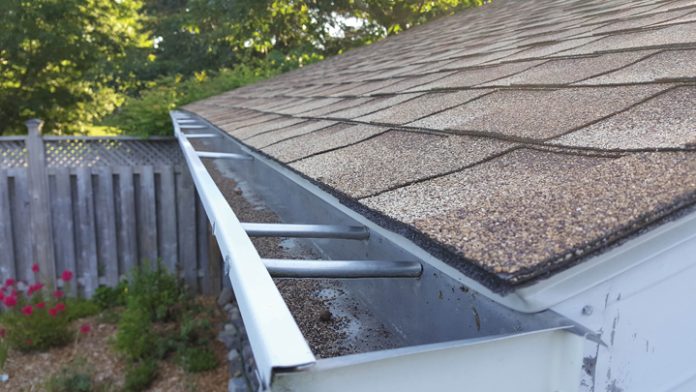By Patrick Langston, All Things Home
It’s been a long winter, but getting a jump on early spring maintenance will help make your home shipshape again as we head into warmer times.
You won’t get everything done in a weekend, so space the tasks out and tackle them a bit at a time. And be safe: if there’s anything you don’t feel comfortable with, call in a pro.
Gutters: Clean gutters of leaves and other debris, check downspouts for good flow and tight connections, and make sure any downspout extensions take water away from your home to a lower part of the yard.
Roof: Check for cracked or missing shingles and have them replaced. While you’re at it, ensure exterior fixtures such as satellite dishes and exterior lights haven’t been loosened by all the snow and ice. If they have, tighten them up.
Attic: After winter’s snow and ice, ensure there are no attic leaks. Look for wet spots or water staining on the underside of the roof and moisture or mould on insulation. Also check for mice and other critters that may have taken up residence. Mice can probably be eliminated with traps, but anything bigger like a squirrel will likely require the services of a pro.
Other leaks: Look for leaks and mould in all areas of your home. Check windows, doors, bathrooms and other spots where water damage could occur. Address mould issues immediately. For minor surface mould, treat with Concrobium Mold Control (recommended by celebrity contractor Mike Holmes). If you have a large amount of mould, contact a remediation company to dispose of it properly.
Decks, etc.: Check your deck, porch and exterior stairs, especially those made of wood, for deterioration and rot. Applying a protective wood treatment or replacing rotten boards will extend the life and improve the safety of these areas.
Paint inspection: Check and touch up exterior paint as required. Remember, paint won’t cure properly if the temperature is too low: apply when the daytime thermometer is at least 10 C and doesn’t drop below 0 C for several nights in a row.
Rot inspection: If you see rot in window or door frames, it’s probably time to replace the whole unit. Rot spreads surprisingly fast, can harbour carpenter ants, and can lead to structural damage if left too long. Window and door installers are busy in summer, so be quick to make an appointment.
Masonry: Check siding and masonry for damage as well. Some siding and masonry repairs are DIY projects, but serious damage to foundations requires a professional touch.
Air conditioner: Your central air conditioner works hard during the summer. Preparing it now minimizes the chance of a failure on a steamy July afternoon. If you are not adept at DIY tasks, hire a professional to inspect and maintain it annually. Expect to pay between $100 and $200 for the service.
Barbecue: Pulling the barbecue out of winter hibernation involves a lot more than just turning on the gas. On the plus side, your efforts will mean tastier, better-cooked food, less wasted fuel, and a barbecue that lasts a lot longer. You should also give the barbecue a thorough cleaning a couple of times during barbecue season.
Fridge coils: A surprising amount of dust and dirt can accumulate on refrigerator coils, especially if you have pets. That accumulation prevents the unit from working at top capacity, so your energy consumption increases and you run the risk of early appliance failure. Cleaning the coils is usually a simple job, requiring just a vacuum cleaner, a flashlight, and a specialty brush available at home improvement stores.
Exhaust hood: Clean your range exhaust hood and filter. It not only leaves your kitchen smelling better, it can reduce the risk of a fire. Like refrigerator coils, it’s an easy DIY job. Some filters can go in the dishwasher; others should be washed by hand. Check your manual to be sure.
Indoor caulking: Caulking around sinks and in the seams of showers keeps water where it belongs, so it’s important to check the condition of your indoor caulking periodically. If it’s brittle or pulling away from surfaces, it’s time to replace it.
Outdoor caulking: Spring is a great time to get around to re-caulking the exterior of windows to keep out water and provide a good seal.
Filters: Replace the air filter in your furnace, heat pump or heat recovery ventilator. After filtering out many allergens and dust over winter, it’s time to be refreshed.
Smoke detectors: Did you remember to check your smoke detectors and change the batteries when the clocks went ahead? If not, do it now before you forget. Also, check the expiry date of your detectors, which should be indicated on the back or side of each device. Battery-operated detectors are generally good for about 10 years. Note that it’s important to use the correct batteries.
Patrick Langston is a long-time journalist and co-founder of AllThingsHome.ca, Ottawa’s trusted resource for home buyers and homeowners.

